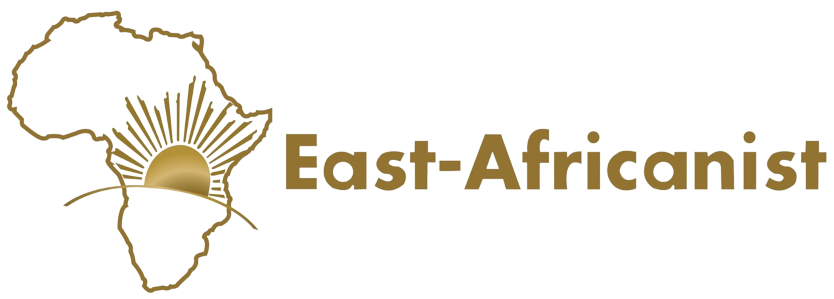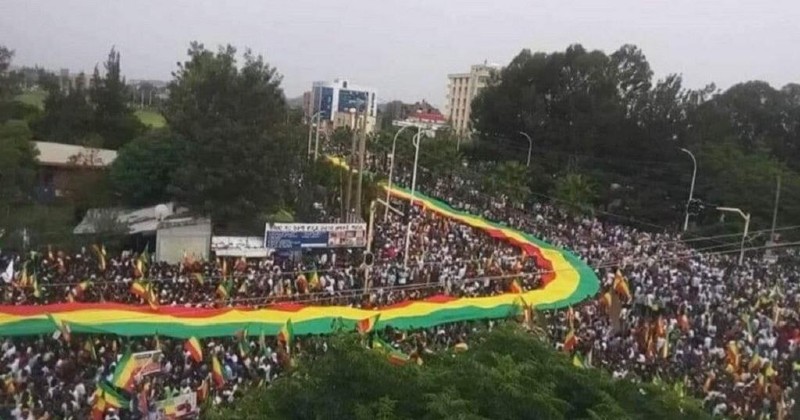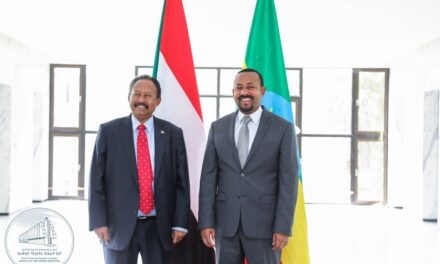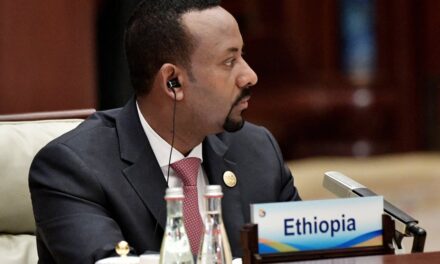By: Hewan Semon
About Author: Hewan is a doctoral candidate at the University of Hamburg in Germany, where she studies Geez, and 18th – 20th Century Ethiopian history. Among forthcoming works by Hewan, a co-authored ‘Concise Socio-Political and Mass Media English to Amharic Dictionary’ and An Amharic translation of Haggai Erlich’s ‘Haile Selassie: His Rise, His Fall’ are some of them.
I briefly returned to Ethiopia a few months after PM Abiy took the oath of office in early April 2018. I have listened to all his speeches, watched his televised meetings, briefings, and parliamentary sessions.
I also watched him when he spoke in parliament and uttered what is now his famous, ‘the Ethiopian government itself has been terrorizing its own citizens,’ landmark of a speech. I also remember clearly when I started noticing his eyes grow weary and showed some signs of tiredness.
I have been a TeKa (an Amharic slang for a Tesfegna Cadre, hopeful cadre) since PM Abiy’s acceptance speech and later that evening when he mentioned Emperor Menelik and all his predecessors at the palace, sitting with former PM Hailemariam Desalegn and other guests. Yet, this was not unique to me. I was just one of millions of hopeful Ethiopians who were unable to believe whenever Abiy spoke or delivered something close to a kind act towards his people.
Ethiopians’ deep reaction to PM Abiy’s rhetoric of love, forgiveness and hope shows how we as a people, as Ethiopians, have been neglected by our leaders for so long.
Here is a prime minister who hasn’t laid out his clear political plan for the next two years, at least in ways that are agreeable to most; but who has won the hearts of millions of Ethiopians simply by speaking words which undo over 4 decades of pain and suffering.
His messages of love and forgiveness have boldly made their way into various manifestations across the capital, Addis Abeba. It has become commonplace to see law enforcement officers maintain the law honestly and for the sake of the people they are meant to protect.
For example, federal police officers are seen kindly helping anyone find her or his way around the city if lost, widely recognized notorious traffic policemen have mostly quit badgering drivers for money in several neighborhoods. The local police are now mostly seen as friends of the people. This is quite a departure from what we believed in the past, as we were psychologically conditioned to believe that law enforcement institutions had stood against us.
Let me share some personal experiences.
For Timket (Ethiopia’s epiphany), in January 2018, almost three months before PM Abiy came to power, I followed the Qidist Selassie Cathedral Tabot (replica of the Arc of the Covenant) all the way to Jan-Meda, where epiphany is widely and colorfully celebrated. When we arrived at 4 Kilo, I was told a number of times by peace-keeping federal police that they would personally throw me away for celebrating the way I did. Someone actually said “endalashkenetirish,” (I will throw you away) if I didn’t stop singing, which he called “excessive”.
At the time, although I was uncertain as to how one would measure excessive celebration at the largest street festival of the Ethiopian Orthodox Church, I kept my questions to myself and resolved from singing and quietly followed the Tabot to Jan-Meda out of fear. Officers were unquestionable.
A few months after he came to power, however, PM Abiy made his first major trip to the United States and met tens of thousands of Ethiopians. Upon his return, he also did the unthinkable and brought Ethiopia’s exiled Orthodox church patriarch, his holiness Abune Merkorious back to Ethiopia. This was a remarkable moment.
I found myself at the gates of Qidist Selassie Cathedral again for the reception organized for Abune Merkorious’s return to Ethiopia after 27 years of exile. Unsurprisingly, federal police were stationed throughout the church and the streets leading to the church. However, this time, my experience was entirely different from the one in January. I asked one of the federal police where the rest rooms might be and he responded by saying, “Weye, Weye, Bezih gar new yenekonjo.” (loosely translated to: Right around here, my dear).
The ease at which his ‘weye’ came from him, and the kindness his entire being radiated was shocking to experience. I was used to the stiff, fear inciting nature of the federals (as we Ethiopians mostly refer to the fed police), that we had come to recognize since 2005.
In the early days of August 2018, words and tones, and the body languages of the most feared police force all in all represented a dramatic change of attitude towards the public within the city, and maybe even across the country at large.
One cannot ignore the attitude change Abiy has brought on Ethiopians. Since it is now assumed the law is to be respected, people are seen demanding proper services at various spots; I’ve experienced this at Sub-cities, Tele-Communicationoffices, and Kebelles.
Friends no longer shy away from discussing politics in open spaces, even around policeofficers. This was a big NO NO back in the days before PM Abiy. Some even remark, “Hig aleko ahun” (we now have the rule of law). It has equipped us with the confidence to speak our minds and experiment with our rights. This is just the beginning and it is reflective of the thirst for a general rule of law in the country.
As an Ethiopian raised in the EPRDF era, I was also raised to identify as a particular ‘biher’ (ethnic identity), as I was unrecognized by the constitution as an Addis Abeban, and bythe academic space and curriculum dominated and fixated on destroying the narrative of an ‘Ethiopiawinet’ (our national identity). I am among the generation that has attempted to radically hold on to a super-glorified, at times romanticized Ethiopia, simply as resistance to EPRDF’s rhetoric.
Certain EPRDF endeavors have successfully pushed most of us into becoming ardent and blind opponents to the government, and the grandest and yet simplest way to resist EPRDF seemed to be to hold onto the patriotic legend of Ethiopia. This is not just the geographical Ethiopia. This Ethiopia, we imagined and held onto that came to its full realization at the victory earned at the Battle of Adwa and is marked by a grand Christo-Islam religious (almost utopic) love and tolerance.
It is about an Ethiopia infused with heavenly symbolisms that mix myth and reality about the formation of the state as early as the 1st century and is highlighted by historic narrations of inter-cultural coexistence. In short, friends and neighbors took an unquestionable, dignified, mythical and romanticized Ethiopiawinet as the frontier with which to oppose EPRDF.
I may not know particular policies of the government, but I was raised knowing quite well that it stood to destroy a beloved country with history that stood the test of time.
And so, I have been entirely and dominantly preoccupied with defending this utopic vision of Ethiopia, because all my life, ideals that were dear and near to those who raised me had been under threat.
What Abiy did, as beautifully as he did it, is to steal this well practiced and rehearsed defensive exercise from me.
Our prime minister managed, with in three months after coming to power, to give us the confidence that our leaders suddenly believe in Ethiopiawinet, as much as we do. We, those like myself, no longer had to defend it. There seemed to be no longer an organized, powerful government body threatening what we held dear.
Ethiopia was talked about; Ethiopians were recognized as equals to different ethnic groups of the nation. We no longer had to argue, defend, fight for recognizing this basic yet fundamental ground. Of course, much more remains to be done with regards to work on the national unity matters. However, the changes so far are quite extraordinary.
All this without a single change in the EPRDF constitution.
What Abiy did however, is also far bigger than this.
Once Abiy established the basic ground we had been defending, I had to sit and reflect on some of the deeper points concerning Ethiopia and Ethiopiawinet. One of the many crimes of EPRDF is that it forced those like me to spend way too much energy defending at all costs the ideas that a nation exists, that a nation has been imagined and achieved, that Ethiopia is larger than its ethnic components; when in fact, those like myself should not have wasted this much time on it at all.
I realize that a country is never achieved, it has to be maintained. The generation of the 60s and forth challenged the points of Ethiopiawinet because of the realization that Ethiopiawinet had certain faults in their eyes. Its leadership, a monarchy, based on one religious’ institution (as simplified as this sounds) had to be challenged to allow room for other Ethiopians to exercise similar basic rights to access to leadership, just for example.
As weary as I am of solidified ethnic identities, certain groups felt that they were best represented by their ethnic identities, and they rose to challenge, violently at times, what they believed did not allow room for such basic recognition.
I fear we have yet to consider these points as they have not been fully addressed or answered. In this particular venture, we as a country have, after decades of confusion, landed at a belief of a glorious Ethiopia, that may be challenged again by those who believe that Ethiopia may not represent them.
We have joined the bandwagon of the Abiy train without much thought as to what ideas, questions and concerns (the multitude of the flags being hoisted across the nation represent the vast ideals the country has yet to work to bridge) we all have brought. We are now left with discussing, debating, publicly talking about what sort of an Ethiopia we want.
Serious consideration must be given to the various actors involved in the ongoing change period. Some spaces that allow such discussions are happening across the city, but they have to be further organized, and coordinated. These discussions should not be led by politicians and activists alone.
But they should be held among friends, colleagues, neighbors at bars, restaurants, cafes, across the city as well. These may need to have guidance from learned historians and others and it could be exactly why we need public intellectuals at this juncture in time. The discussions in the capital city may also vary drastically from discussions from outside the capital. Those also need to be carefully considered.
Addis Abeba, sadly, is the metropole, but it isobvious that it is far from representing the vast interests of the people outside its territory.
As Addis Abebans, to maintain and protect Ethiopia under TPLF dominated EPRDF, we had to glorify Ethiopia. This happened in a number of ways. We would sing blindly about the past and preserve a glorious Ethiopia via theatres, films, in secret discussions at home and in our neighborhoods, stand defiantly on social media with anything that represented Ethiopia and its past, and avoid critical dialogues with people we feared would sway us too far away from our beloved ideal.
One definite evidence for this is the nationalist music scene that dominated the city’s popular culture in the past few years. The quality of the music produced is mostly poor, the poetry is less than impressive, the arrangement even more so. It is as if “musicians” were unaware of the music giants and poets the country has had when they confidently presented the public with their ultra-Ethiopian nationalist, low-quality productions. However, we tolerated them because they presented an ideal we assumed too great to sacrifice. I’m confident that these songs will be valued, weighed and critically viewed in the future.
To maintain Ethiopia post-Abiy, we now have to develop a public culture of discussing openly with lecturers, public intellectuals (despite how few), historians of all sorts, and engage directly and honestly with our past. This requires a lot of time and dedication; involves universities, schools, traditional education centers, and the general public.
Abiy stole my cause but has given me a greater cause. If we are to build statues that will indefinitely spark hatred between groups of people, let us at least find historians who can prove that those statues indeed deserve to be built or either be moved to museums. This means digging up the realities of our past that we have so blindly been guided to form certain ideas about.
The hope and confidence radiating can be used to develop space for further critical discussions. What are the values we want to take with us, and what are the definitions that we can work with?
We have seen the results of leaving such discussions to few political elites. The general public has shown incredible maturity as compared to the elite of our country when it comes to dealing with national questions. It is the public that needs to take center stage in these discussions. Patriotic sentiments have been used by few elites when it was needed for war, to defend sovereignty and so on. How about channeling these sentiments and actually lending ears to people who are not opinion leaders but spend as much energy and time discussing topics regarding Ethiopia, Ethiopiawinet, political and economic prospects of the country. Ras Hotel poetry events, theatres, movies and music productions all hint at a slightly conscious environment within Addis Abeba. Let us channel these voices to form a clear understanding of what it means to be an Ethiopian in post-Abiy times, and to negotiate and tease out our aspirations of an Ethiopia belonging to all Ethiopians.
It is no longer enough to defend the nation, it is now important to honestly and carefully open up the nation’s historical past and navigate through its ups and downs to acknowledge, and recognize both the good and the bad, but also to focus on the future and what it holds for all of us. And this, Abiy cannot do. It is up to the rest of us.
This piece was originally written in September 2018 and was briefly updated to also express recent events.
(The views expressed in this post do not necessarily represent the views by East-Africanist. The views are solely that of the author.)





